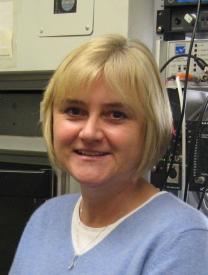
Pictured (left to right): Flanagan-Cato, Kelly, Kaplan, McLean, Kane, Schmidt, Hipolit
| Neuroscience Directors: | Flanagan-Cato, Lori | Schmidt, Marc | |
| Neuroscience Associate Director: | Hipolit, Kristen | ||
| Neuroscience Program Coordinator: | Kelly, Mary Ellen | ||
|
Neuroscience Lecturers: |
McLean, Judith | ||
| Neuroscience Minor Advisors: |
Levy, Joanne Health Care Management |
Johannes Burge Computational Neuroscience |
Balasubramanian, Vijay Computational Neuroscience |

Lori Flanagan-Cato
Co-Director
Dr. Flanagan-Cato studies the neural circuits and receptor signaling mechanisms that underlie hormone-driven behaviors, such as water and sodium ingestion and reproductive behaviors. She is faculty member in the Department of Psychology and teaches BBB109 (Intro to Brain and Behavior), BBB260 (Neuroendocrinology) and BB4260 (Neuroendocrinology Seminar).
Read Bio
Marc Schmidt
Co-Director
Raised in Belgium, Dr. Schmidt attended Swarthmore College where he majored in Biology and was a member of a national championship winning tennis team. Dr. Schmidt received his PhD in Colorado where he studied the developing nervous system and spinal cord regeneration. He then did his postdoctoral work at Caltech with Dr. Mazakazu Konishi studying the neural bases of vocal production and perception in songbirds. Dr. Schmidt is an associate professor in the Biology department where he continues his studies on neural aspects of vocal production and learning with a special interest in how social context shapes brain circuitry. Dr. Schmidt has received several scientific awards including a Basil O' Connor Award from the March of Dimes Foundation and an Alfred P. Sloan Fellowship award. He teaches Cellular and Molecular Neurobiology (BBB251), Neural Systems and Behavior (BBB479), Advanced Systems Neuroscience (NGG 598) and the program's Honors seminar (BBB499).
Read Bio
Jennifer Heerding
Associate Director
Dr. Jennifer Heerding has been associated with Penn for over 30 years, as a graduate student, a postdoctoral fellow and as the Associate Director for the undergraduate Neuroscience Program. She is a native of California, with degrees in chemistry from both U.C. Davis and U.C. Berkeley. She earned her Ph.D. in Pharmacology at Penn in the laboratory of Dr. Steven Fluharty, investigating ligand binding to G protein coupled receptors. She has taught Autonomic Physiology (NRSC 2269), Stress Neuroscience (NRSC 4469) as well as Behavioral Pharmacology (BBB 481) and Developmental Neurobiology (BBB 350), using her Rhodesian Ridgeback (“Bob”) as a topic of numerous hypothetical medical conditions and situations. Bob is amazingly resilient, having survived acute hypertension, hyponatremia and various types of pituitary tumors. Dr. Heerding has been named a “Hall of Fame” instructor by Penn Course Reviews and has been chosen three times as the recipient of the Neuroscience Teaching Award. Dr. Heerding was also honored with the Dean’s Award for Distinguished Teaching by Affiliated Faculty in 2011.
Read Bio
Kristen Hipolit
Associate Director
Dr. Hipolit is the Associate Director for the Undergraduate Neuroscience Program at Penn. She received her Ph.D. from the University of Pennsylvania under the mentorship of Dr. Harry Ischiropolous, where her researched focused on the cellular pathways involved in Parkinson’s Disease neurodegeneration. Prior to that, she received her undergraduate degree in neuroscience from the College of William and Mary. She has been teaching at Penn since 2012, during which time she has held a variety of former roles including teaching biology courses for the post-bac program, teaching writing seminar courses on neuroscience topics, and serving as the director for a neuroscience summer program for high school students at Penn.
Read Bio
Michael Kane
Senior Lecturer
Born and raised in the Philadelphia area, Dr. Kane received his undergraduate degree in psychology at Penn State University. For the next several years, he worked as a research assistant in the neuroimaging lab of Dr. Bradley Peterson, first at Yale University, then at Columbia University. Dr. Kane went on to UCLA (“The West is the Best” as fellow Bruin Jim Morrison proclaimed) where he completed his Ph.D. in neuroscience in the fields of neurogenetics and neurodevelopment under the guidance of Dr. Joanna Jen. He then completed a post-doctoral fellowship in molecular neurobiology at the Bay Pines Veterans Affairs Medical Center in St. Petersburg, FL under the direction of Dr. Bruce Citron. He went on to complete a second post-doctoral fellowship in Molecular Neurochemistry at the Wayne State School of Medicine under the direction of Dr. Donald Kuhn. In 2012, Dr. Kane returned to the Philadelphia area and served as an adjunct faculty member at both Temple University and Penn State Abington. Prior to arriving at Penn in July of 2015, Dr. Kane was a Science Writer at Thomas Jefferson University. Dr. Kane teaches BBB109 and BBB270.
Read Bio
Mike Kaplan
Lecturer / Lab Coordinator
Dr. Mike Kaplan has been associated with Penn for over 25 years, as a graduate student, a postdoctoral fellow, and most recently a lecturer and lab instructor for the BBB program. Born and raised in Philadelphia, he graduated from Wesleyan University with degrees in biochemistry and philosophy, then sojourned in New York City to dabble in the music business, where he wrote non-hit songs with titles like “Brain in a Jar”. Perhaps unsurprisingly, he ended up back in science. His research here at Penn has focused on synaptic plasticity, both short-term (with Dr. Marc Dichter in the medical school) and long-term (with Dr. Ted Abel). He teaches Cellular Neurobiology (BBB251) in the fall and Experimental Methods in Synaptic Physiology (BBB492) in the spring, runs the labs for BBB251 and BBB109 (Introduction to Brain and Behavior), and also runs the Neurolab, an undergraduate teaching lab for electrophysiology and computer simulations. Mike also teaches a popular freshman seminar, Music and the Brain (BBB060). Dr. Kaplan received the Dean’s Award for Distinguished Teaching by Affiliated Faculty in 2009.
Read Bio
Judith McLean
Senior Lecturer
Dr. Judith McLean has been associated with Penn for 35 years, as an undergraduate BBB major, a graduate student, a senior research investigator, and as a lecturer and lab instructor for the BBB program, the School of Veterinary Medicine and the School of Medicine. Dr. McLean was born in Northern Ireland but spent most of her youth in a Philadelphia suburb and entered Penn to become a BBB major in the second year of the program. She received her PhD in Anatomy at Penn in the laboratory of Dr. Larry Palmer, investigating the contribution of linear mechanisms to the velocity selectivity of simple cells in primary visual cortex. After completing a post-doctoral fellowship with Dr. Barry Waterhouse at Hahnemann University, where she investigated how norepinephrine could modulate neuronal responses to moving visual stimuli, she returned to Penn and has studied plasticity in the adult primary visual cortex (with Dr. Larry Palmer), efficiency of information transmission by retinal ganglion cells (with Dr. Peter Sterling), and most recently the neural circuits involved with breathing and vocal control in the songbird (with Dr. Marc Schmidt). She teaches Introduction to Brain and Behavior (BBB109), Visual Neuroscience (BBB217), Neuroethology (BBB233), and Laboratory in the Structure of the Nervous System (BBB310).
Read Bio
Vijay Balasubramanian
Computational Neuroscience Minor Advisor
Dr. Balasubramanian grew up in India and Indonesia and attended high school at the Jakarta International School. He holds a Bachelor and Master’s degree in Physics and Computer Science from M.I.T and received his Ph.D. in Theoretical Physics from Princeton University. He then went on to be a Junior Fellow of the Harvard Society of Fellows and a Fellow-at-Large of the Santa Fe Institute. He is currently the Merriam Term Associate Professor of Physics at the University of Pennsylvania. Dr. Balasubramanian divides his time working in particle physics, focusing on basic questions concerning the nature of space and time, and neuroscience, where he is interested in the way information is produced, processed and transmitted in the nervous system. He teaches the capstone course for the Computational Neuroscience Minor (BBB 594: Theoretical and Computational Neuroscience). He received the Ira H. Abrams Memorial Award for Distinguished Teaching in 2006.
Read Bio
Johannes Burge
Computational Neuroscience Minor Advisor
Read Bio
June Kinney
HGMG Minor Advisor
June Kinney has been associated with Penn for many years starting as a doctoral student in City Planning, a Research Associate at Leonard Davis Institute, and Lecturer in Urban Studies. After spending four years in New Jersey State Government working on a federal demonstration of the DRG reimbursement system subsequently adopted by Medicare, she returned to Penn as Associate Director of the MBA Program in Health Care Management and Advisor to the Wharton Undergraduate Concentration in Health Care Management and Policy.
Read Bio